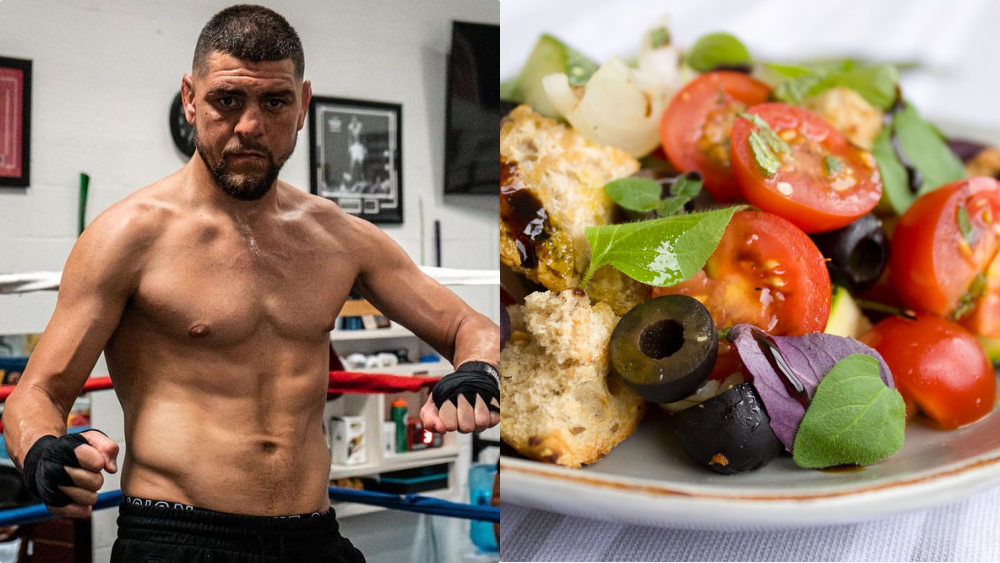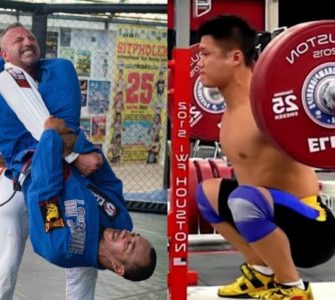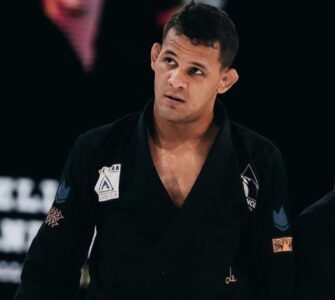Guest post by Evolve MMA, Asia’s premier championship brand for martial arts. It has the most number of World Champions on the planet. Named as the #1 ranked martial arts organization in Asia by CNN, Yahoo! Sports, FOX Sports, Evolve MMA is the top rated BJJ gym in Singapore.
As a martial artist, your journey isn’t just about mastering techniques or winning bouts; it’s also about challenging and overcoming stereotypes. One such stereotype is the belief that a vegan diet cannot support the demanding physical requirements of martial arts. This idea has been deeply ingrained in the martial arts community for decades, but is it time to re-evaluate it? Can you, as a vegan martial artist, not just survive but excel in your discipline?
Understanding The Vegan Diet
Firstly, it’s essential to understand what a vegan diet entails. Unlike a vegetarian diet that may include dairy or eggs, a vegan diet consists of only plant-based foods. This means your nutrition comes from fruits, vegetables, grains, nuts, seeds, and legumes. A common misconception is that such a diet lacks sufficient protein, a crucial nutrient for muscle building and repair. However, many plant-based sources are rich in protein, such as lentils, chickpeas, tofu, and quinoa.
Protein: The Building Block
As a martial artist, your body requires protein to repair and build muscle. The myth that plant-based diets cannot meet protein requirements is just that – a myth. Several high-level athletes and martial artists have thrived on vegan diets. They ensure they consume a variety of protein-rich plant foods to meet their needs. The key is in the diversity and quantity of protein sources.
Energy And Endurance
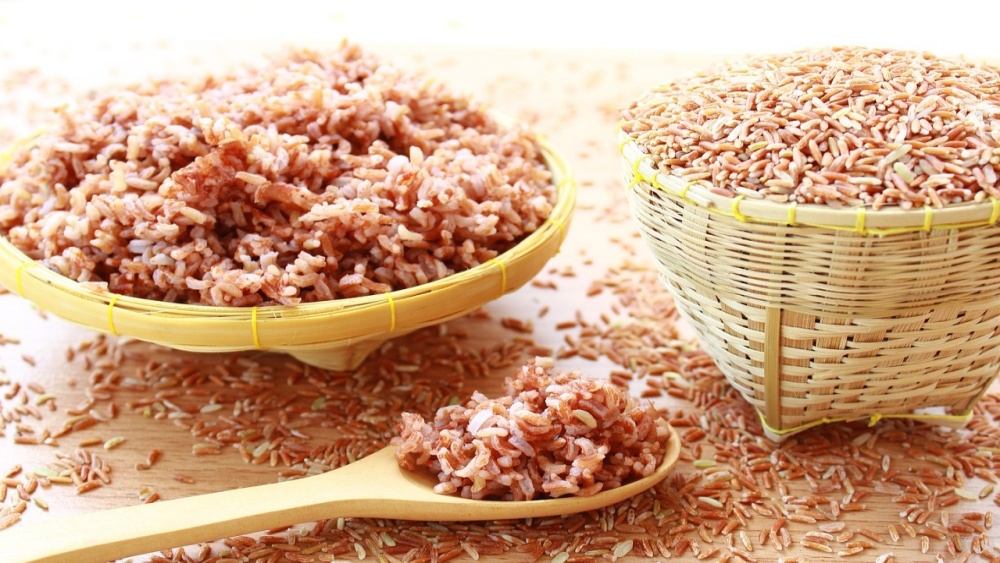
Brown rice is a natural energy booster, the nutritious key to fuel your energy level throughout the day.
Another concern is whether a vegan diet can provide enough energy for the intense workouts and sparring sessions you endure. Plants are high in complex carbohydrates, the primary energy source for your body. Foods like sweet potatoes, oats, brown rice, and fruits can fuel your body for prolonged periods, increasing your endurance and stamina.
Nutrient Density And Recovery
Vegan diets are rich in vitamins, minerals, antioxidants, and phytonutrients, which are essential for overall health and recovery. These nutrients aid in reducing inflammation, which is crucial for recovery after intense training sessions. Foods like berries, leafy greens, nuts, and seeds can help speed up recovery and reduce the risk of injuries.
Sample Vegan Diet
A sample diet for vegan martial artists should be carefully crafted to ensure it provides all the essential nutrients needed to support their rigorous training and recovery. Here’s a glimpse into what a day’s meal plan could look like:
Breakfast: Energizing Start
Start your day with a nutrient-packed breakfast that provides both energy and sustenance. A smoothie bowl can be an excellent choice. Blend bananas, mixed berries, spinach, and plant-based milk (like almond or soy milk) for a nutrient-rich smoothie.
Top it with chia seeds, sliced almonds, and granola for added protein and healthy fats. This meal offers a perfect combination of carbohydrates for energy, protein for muscle repair, and antioxidants for overall health.
Mid-Morning Snack: Protein-Packed Nourishment
For a mid-morning snack, opt for a protein-rich option like a homemade trail mix. Combine roasted chickpeas, pumpkin seeds, and dried fruits like apricots or raisins. This snack is not only high in protein but also provides essential minerals and a quick energy boost.
Lunch: Balanced And Satisfying
Lunch should be a hearty and balanced meal that fuels your body for the rest of the day. A quinoa and black bean salad is a great choice. Mix cooked quinoa with black beans, diced bell peppers, corn, avocado, and a squeeze of lime. This provides a balanced mix of protein, healthy fats, and complex carbs, along with a variety of vitamins and minerals.
Afternoon Snack: Quick Energy Boost
Before evening training, a light snack can help boost energy levels. A peanut butter and jelly, banana sandwich on whole-grain bread offers a good mix of protein, healthy fats, and carbohydrates. This snack provides sustained energy and helps prevent fatigue during rigorous training sessions.
Dinner: Recovery And Repair
After an intense workout, dinner should focus on recovery and muscle repair. A tofu stir-fry with a variety of vegetables like broccoli, carrots, and bell peppers, served over brown rice or whole grain noodles, makes for an ideal post-training meal. Tofu is an excellent source of plant-based protein, while vegetables add essential nutrients and fiber.
Post-Dinner: Light And Nourishing
A light snack before bed can aid in overnight muscle recovery. A small bowl of chia pudding made with plant-based milk and a sprinkle of nuts or fruit can be soothing and nourishing. Chia seeds are high in omega-3 fatty acids, which are beneficial for inflammation and overall health.
Real-Life Vegan Warriors
To break the stereotype, it’s important to look at real-life examples. Many successful martial artists follow a vegan diet. These athletes have not only excelled in their respective disciplines but have also reported improved recovery times, higher energy levels, and better overall health since switching to a vegan diet.
Nick and Nate Diaz have been two of mixed martial arts’ biggest stars in the past two decades, yet they’ve been vegan for most of their adult lives. Nick was a champion in multiple MMA promotions like the now-defunct WEC and Strikeforce promotions. He enjoyed lots of success at the highest levels of MMA and shared the cage with just about every big name of his generation.
Current UFC bantamweight champion “Sugar” Sean O’Malley is another example of a vegan martial artist who dominates at the highest levels of mixed martial arts.
Debunking The Myth Of Weakness
There’s a persistent myth that vegan diets lead to a lack of strength or muscle mass. This is far from the truth. With the right balance of macronutrients, you can build and maintain muscle on a vegan diet. Plant-based diets can be less inflammatory than diets high in animal products, leading to better long-term muscle health.
Mental Clarity And Focus
Martial arts is as much a mental game as it is physical. A vegan diet, rich in fruits and vegetables, has been linked to improved mental clarity and focus. These cognitive benefits can give you an edge during training and competition. Overall, vegan diet does a big part in your mental health.
Adapting Your Diet To Your Training
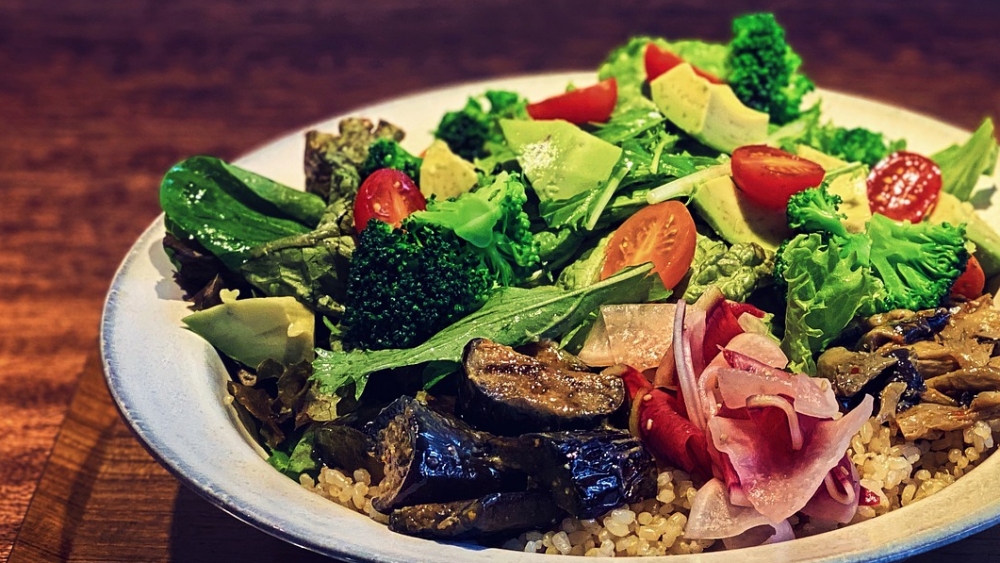
Always plan your meals that will provide you with enough calories, protein and the necessary nutrients that will get you through your training.
Adapting a vegan diet to your martial arts training is about balance and planning. You need to ensure you’re getting enough calories, proteins, and essential nutrients to support your training regime. Meal planning and possibly consulting with a nutritionist can help you make this transition successfully.
Environmental And Ethical Benefits
Beyond personal health and performance, choosing a vegan lifestyle has broader environmental and ethical implications. Many martial artists find that the discipline and respect they learn on the mat align with the principles of environmental stewardship and compassion inherent in a vegan lifestyle.
Embracing The Challenge
As a martial artist, embracing a vegan lifestyle may seem like a daunting challenge. However, with careful planning and a balanced approach to nutrition, it is entirely possible to excel in your sport while adhering to a plant-based diet.
By doing so, you not only challenge the stereotypes within the martial arts community but also contribute to a healthier planet while improving your health. Remember, the journey of a martial artist is about breaking barriers and exceeding limits, both physically and mentally. A vegan diet could be your way of pushing these boundaries further.

